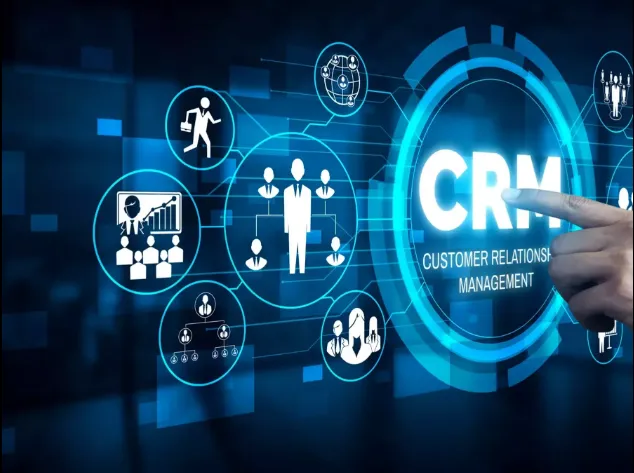
How CRM can help streamline customer relationships in 2024
CRM Software:
In today's competitive business landscape, building strong relationships with customers is more important than ever. That’s where Customer Relationship Management (CRM) software comes in. But what exactly is CRM, and how can it benefit your business? In this blog post, we’ll dive into what CRM software is and explore the key advantages it offers to businesses of all sizes.
What Is CRM Software?
CRM software is a tool designed to help businesses manage and improve interactions with current and potential customers. At its core, CRM software centralizes customer data in one accessible location, allowing teams to track customer interactions, sales, and service requests. The goal of CRM is to streamline business processes and enhance communication to create better customer experiences.
Think of CRM as a digital filing cabinet for all customer-related information—be it contact details, purchase history, or communication records—making it easier for employees to access and use this data to build personalized relationships. However, CRM software isn’t just a database. It often includes powerful features like automation, analytics, and integrations with other business tools.
Key Features of CRM Software
1. Contact Management
CRM software allows businesses to store and organize all their customer contact information in one place. This includes names, phone numbers, email addresses, and communication history. When teams have easy access to this data, they can tailor their marketing, sales, and support efforts more effectively.
2. Sales Pipeline Management
CRM software helps track every stage of the sales process, from initial lead generation to the closing of a sale. By visualizing the sales pipeline, businesses can monitor progress, identify bottlenecks, and ensure that no opportunities slip through the cracks. This functionality improves sales forecasting and helps sales teams prioritize their efforts.
3. Automation of Routine Tasks
CRM systems often include automation features that can save time and reduce human error. For example, you can automate follow-up emails, appointment scheduling, or lead nurturing processes. Automating these tasks frees up valuable time for your team to focus on more strategic activities.
4. Customer Support and Service
CRM software can also be a key tool for managing customer support requests. You can track open tickets, monitor response times, and ensure that customer inquiries are addressed promptly. The software can also integrate with communication channels like live chat or email, giving support teams a single platform to manage customer issues.
5. Analytics and Reporting
Modern CRM systems come with built-in analytics tools that provide valuable insights into customer behavior, sales performance, and campaign effectiveness. By analyzing this data, businesses can make more informed decisions, refine strategies, and better understand customer needs.
6. Integration with Other Tools
CRM software often integrates seamlessly with other business tools, such as email marketing platforms, e-commerce systems, and social media management tools. This connectivity ensures that your CRM system becomes the central hub for all customer-related data and activities.
Benefits of CRM Software for Your Business
1. Improved Customer Relationships
By having a 360-degree view of each customer, CRM software enables businesses to provide more personalized and tailored experiences. This can lead to greater customer satisfaction, loyalty, and long-term relationships.
2. Increased Efficiency
Automating routine tasks and centralizing customer data helps your team work more efficiently. Sales reps, customer service agents, and marketing teams can focus on high-value activities, while the CRM handles repetitive tasks.
3. Better Collaboration
With all customer data housed in one system, teams can easily share information and collaborate. For instance, the sales team can pass on relevant details to customer support, ensuring a smooth handoff and continuous service.
4. Data-Driven Decisions
The reporting and analytics features of CRM software provide valuable insights that can help you make smarter, data-driven decisions. Whether it’s refining your marketing strategy or improving sales processes, CRM enables you to act based on solid data rather than guesswork.
5. Scalability
As your business grows, your CRM system can grow with you. Most CRM platforms are highly scalable, meaning you can add new users, functionalities, and integrations as your needs evolve. This makes CRM a long-term investment for your business.
Conclusion
In an era where customer experience is paramount, CRM software is a crucial tool for businesses looking to strengthen their customer relationships, improve efficiency, and drive growth. Whether you're a small business owner or part of a large enterprise, implementing CRM software can help you stay organized, deliver exceptional service, and build lasting connections with your customers.
If you’re ready to take your customer relationships to the next level, investing in CRM software is a step in the right direction. With the right CRM solution, your business can enhance communication, boost productivity, and create a more personalized experience for every customer you serve.
